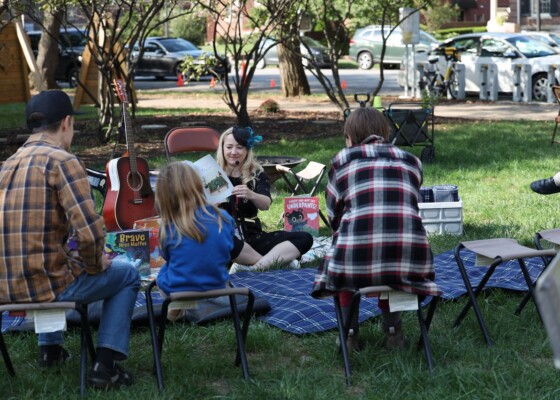There is no Them. We are all Us.
March 11, 2011Consider this: 1/3 of the corn grown in the United States is now used for biofuel. I believe this relates to the current crisis of sky-rocketing food prices and exacerbates…
Consider this: 1/3 of the corn grown in the United States is now used for biofuel. I believe this relates to the current crisis of sky-rocketing food prices and exacerbates hunger crises worldwide in two primary ways:
1) Our food system has become drastically over-reliant on oil, and thus now alternative fuels, in farming and animal feed practices, food production and global trade.
2) An alarming number of calories in the diet of meat animals and people, globally, are derived from corn and soy.
I believe we would not be at the mercy of peaks and valleys in oil prices and the global commodity crop markets, and I believe we would not see such mass crises of hunger IF:
- We approached the goal of feeding the world and ending hunger through Agriculture as much or more than purely Agribusiness.
- Farmers globally grew a greater diversity of crops, including indigenous crops,
- More of those crops were consumable fresh and whole, rather than only in highly processed forms,
- More of those crops were developed to be in synergy with the unique ecology, climate, soil types, weather patterns, and nutritional traditions of farmland rather than global monocultures,
- All farmers globally still had the legal right and traditional knowledge to save their own seed,
- Farmers in the developing world were not being subjugated into growing commodities to feed global commodity trades,
- Farmers worldwide were empowered to grow real, whole, traditional foods to feed their communities, nations and regions,
- More focus was given globally to sustainable local food production that directly benefits local economies and local communities,
- We applied farming methods that did not pollute and destroy forests, rainforests, waterways and ecological systems, which speed desertification, increase vulnerability to many environmentally stimulated diseases, and accelerate climate change, thus exacerbating the problems faced by the world’s poorest and hungriest,
- We applied farming methods that raised animals in genuinely humane and natural ways, applying true animal husbandry, retaining breed biodiversity, and with respect to the truth that we are what we eat, thus we are what our meat eats too.
If this was a list of the rules, rather than the exceptions, I believe we would live in a cleaner, safer, healthier, less hungry, less impoverished, more just and more sustainable world.
Yes, there are technologies and innovations to integrate, but we must dedicate ourselves to farming to feed the world, without poisoning people, land, water and air in the process. We should also be farming to nourish the world with whole, fresh foods, not highly processed calories. We should be learning from our own epidemic rates of obesity and diabetes coupled with chronic diseases, that no one wins if we spread systems that leave people malnourished, hungry, and dying – even with full bellies.
I had hoped to hear these topics in the How Hoosiers Can End Hunger conversation. I feel like I primarily heard agribusiness as usual. I was extremely grateful for Jerry Adams’ perspective and voice on the panel. But I would have liked to hear more from farmers. I appreciated the comments from KP Singh, who spoke about how farmers in India are turning away from the Green Revolution in droves — not because they’ve been misapplying or over applying chemicals, but because they’ve realized they get better results, more production per acre, and food they can eat from old fashioned biological farming, without the dreadful side effects of chemical-based production methods.
That said, this is not an Us and Them issue. It is not about big farms versus small farms. It is not about “conventional” versus “organic.” It is not about Us the Fortunate and Them the Unfortunate. This is an issue of humanity – of being human. As the collective human race we must learn to see, think and act with the understanding that there is no separation between the choices we make in the ways that we live and what is happening in the world around us. There is no separation between the health of our environment, and the health of our food; between the health of our food, and the health of our people; between the health of our people, and the health of our humanity. There is no Them. We are all Us, and it’s time we start living that way.
This post was written by Laura Henderson. Laura is the founder of Growing Places Indy and the Indy Winter Farmers Market.

